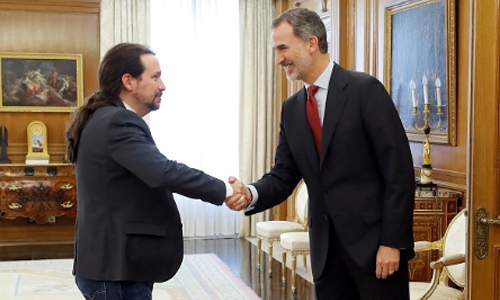Spain inches closer to new government
Spain’s acting prime minister Pedro Sanchez meets King Felipe VI on Thursday who is expected to task him with forming a new government, a complex undertaking that involves negotiating with many diverging parties. While they won a general poll in April and gained lawmakers compared to the previous term, Sanchez’s socialists failed to secure a majority in parliament and will need the support of other groupings.
But despite the obvious horse-trading that entails, Sanchez is widely expected to get the backing he needs to start his second term as prime minister. Without the necessary seats in parliament to form a majority, the conservative Popular Party, centre-right Ciudadanos and far-right Vox have already resigned themselves to being in the opposition. Spain’s monarch, who has since Wednesday been meeting party representatives at the royal palace, as is the norm after elections, ends his consultations around 6:00 pm (1600 GMT) with talks with Sanchez.
‘Fragmented’ opposition
The 47-year-old’s socialists won 123 seats out of 350 in the general election on April 28. “He is profiting from the fact that the opposition is very fragmented, and can’t organise any alternative majority,” says Pablo Simon, a politics expert at Madrid’s Carlos III University. Still, negotiations with other parties will not be easy -- in all, 17 political groupings are represented in Spain’s fragmented national parliament.
Far-left coalition Unidas Podemos, with its 42 seats, has already shown its willingness to back Sanchez back in the traditional parliamentary confidence vote that follows any general election. But in exchange, it wants to enter a coalition government. The socialists are not keen, preferring to rule alone in a minority government which would seek the support of other parties on a case-by-case basis when passing laws or reforms.
Even with the support of Unidas Podemos, Sanchez will still need other regional parties to get the majority he needs. He will however try and avoid courting Catalan and Basque separatist lawmakers, which would likely lead to accusations he is putting in peril the unity of Spain. Two weeks after municipal and regional elections, negotiations have already started at a local level and could also influence which parties decide to give their support or not.
Related Posts

